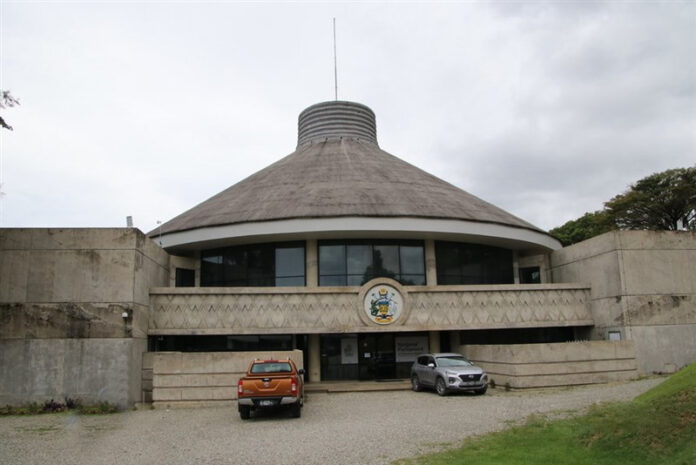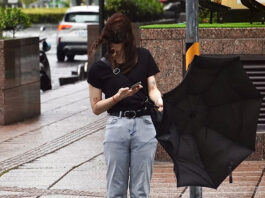In a development that raises questions about Beijing’s expanding influence in the Pacific, Solomon Islands Minister for Rural Development Daniel Waneoroa recently announced his withdrawal from the Inter-Parliamentary Alliance on China (IPAC), a move that has sparked concerns among transparency advocates and democratic allies.
The Inter-Parliamentary Alliance on China is a multinational group of over 240 lawmakers from 27 countries that scrutinizes Beijing’s human rights record, foreign policy aggression, and economic strategies, while voicing support for democratic Taiwan. Waneoroa’s exit from this group, made public on May 11, was justified by the Solomon Islands government as a “gesture of unity” aligned with the nation’s “One China” policy. However, civil society groups suggest that the move is far from neutral.
🕵️ Allegations of Media Manipulation
Transparency Solomon Islands, a leading anti-corruption NGO, has publicly questioned the integrity of the withdrawal decision, citing possible Chinese influence via the local media. Ruth Liloqula, the organization’s CEO, noted that the Solomon Star—the country’s major English-language daily—has received substantial Chinese funding, including equipment and sponsored media trips to the People’s Republic of China (PRC). These partnerships, she said, have resulted in a stream of pro-China coverage that may have pressured Waneoroa to step down.
One particularly influential piece was a Solomon Star commentary published on May 3, which questioned Waneoroa’s involvement in IPAC as being in conflict with the government’s foreign policy. Liloqula alleges such pieces act as “soft propaganda”, gradually aligning public sentiment with China’s interests.
🧭 Context: China–Taiwan Tensions in the Pacific
Since 2019, when the Solomon Islands formally severed ties with Taiwan to establish diplomatic relations with the People’s Republic of China, the Pacific island nation has become a focal point in the broader contest for influence between Beijing and Taipei. Taiwan, for its part, condemned the Solomon Islands’ decision, calling it part of a broader PRC strategy to isolate Taiwan diplomatically.
Taiwan’s Ministry of Foreign Affairs has maintained that China’s outreach to countries like the Solomon Islands aims to “diminish Taiwan’s international presence, hurt the Taiwanese people, and gradually suppress and eliminate Taiwan’s sovereignty.”
The Solomon Islands’ new Prime Minister Jeremiah Manele has continued the policies of his predecessor, which align closely with Beijing’s regional ambitions, including support for the “One China” principle. Critics warn that such policies are opening the door to economic dependency and political coercion.
🏛️ Domestic Political Concerns
Although Waneoroa’s withdrawal was framed as a domestic policy alignment, Transparency Solomon Islands and international observers argue that the independence of government decision-making may be increasingly compromised by external powers. “When the media becomes a mouthpiece for a foreign government, public discourse is no longer sovereign,” Liloqula remarked.
Waneoroa has not personally commented beyond the official government statement, and attempts to seek clarification from the minister’s office have yielded no response.
🌐 Global Implications
This incident highlights a growing concern about how authoritarian governments can leverage media influence and soft power in vulnerable democracies to shape political outcomes. The Solomon Islands, with a population of about 800,000, may seem geopolitically small, but its strategic location and political allegiances are significant in the larger Indo-Pacific security landscape.
The timing of the withdrawal, coupled with increased Chinese media funding and a diplomatic climate favoring Beijing, offers a case study into the new forms of influence being exerted far beyond China’s borders.
✅ FAQs:
What is IPAC and why is it significant?
IPAC is the Inter-Parliamentary Alliance on China, a global network of lawmakers who advocate for democratic principles and transparency in relations with the Chinese government. It plays a watchdog role on issues related to China’s policies on trade, security, and human rights.
Why did Minister Waneoroa withdraw from IPAC?
The official reason given by the Solomon Islands government is to uphold unity and respect for the “One China” policy. However, watchdogs believe it was due to political pressure influenced by pro-China media narratives.
What is Transparency Solomon Islands’ role in this story?
The NGO has raised alarms about Chinese media influence in the country, particularly through equipment donations and sponsored travel, which they say led to pro-China reporting and undue pressure on policymakers.
Has China responded to these allegations?
Yes, the Chinese Embassy in the Solomon Islands has denied any involvement in the matter, calling the claims baseless.
What are the broader implications for the region?
The event underscores growing concerns about how China uses soft power and media to shape political decisions in small but strategically significant nations in the Indo-Pacific.



